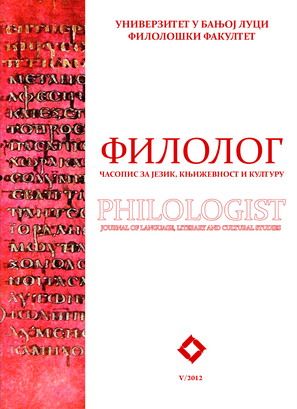
We kindly inform you that, as long as the subject affiliation of our 300.000+ articles is in progress, you might get unsufficient or no results on your third level or second level search. In this case, please broaden your search criteria.

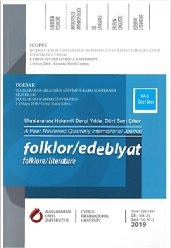
A Room of One's Own can be categorized as a 'feminist manifesto' because it discusses the role of women in the history of literature. Woolf argues that women are oppressed and explains why women are prevented from writing fiction. Further, A Room of One's Own raises many critical issues that are still significant for women of our contemporary world and hence suggests some of the materialist reasons for the oppression of women from Antigone to the present. To Woolf, educating women is the major momentum in their liberation because that is the only way for them to be treated 'equally'. Through female representations in the book, Woolf presents the conditions of men and the mindset of the society. This qualitative study aimed to determine male representations as perceived by undergraduate English Language and Literature students. Male chauvinism, male domination and male freedom were found to be the dominant themes.
More...
The paper deals with a variety of ways in which the phenomenon of Marranism can be perceived as being at play within the work of the Polish-Jewish writer Julian Stryjkowski. First, the author discusses Stryjkowski’s explicit references to Marranism in a novel and two short stories where this historical phenomenon becomes a point of reference for a reflection upon contemporary Jewish condition. Then, by means of a close reading of the first chapter of Stryjkowski’s first novel (Voices in the Dark), the author shows a deeper, implicit and metaphorical understanding of “Marranism”: this time the term would refer to the disguised presence of the homosexual desire within the framework of the traditional Jewish life. The author points to the complex relation between homosexuality and the transgressive lure of Christianity within Stryjkowski’s work, as well as to the ways in which the Frankist heresy can be seen as offering a historical precedence and context for Stryjkowski’s ‘homotheology’. Finally, the third and most comprehensive understanding of Marranism is presented. This time the term refers to the fragile identity of the Polish-Jewish writer himself, which precisely due to its fractured nature enables the writer to capture a whole universe of tensions within the Jewish world and the complex dialectics of heretical homotheology.
More...
This paper deals with the issue of “utopianism” in L.M. Montgomery’s novel Anne of Green Gables (1908), a book which has been translated into Polish many times and has been shaping the worldview and mentality of Polish female readers for over a century. This utopianism is here presented in three separate approaches. Firstly, the study investigates the “translatological utopianism” of the first translation of the novel (by R. Bernstein, published in 1911), which, as a result of the linguistic and stylistic decisions of the translator, has been significantly naturalised and domesticised, as well as adapted to the multiple (genological, social, and cultural) expectations and conceptions of the Polish implied audience. Secondly, attention was drawn to the fact that Avonlea as presented in the novel is a kind of social “matriarchal utopia”, emphasising the issues of women’s solidarity, responsibility, and education, at the same time strongly referring to the Arcadian trend in utopian literature. Thirdly, it was suggested that in Moira Walley-Beckett’s film adaptation Anne of Green Gables (Anne with an E, 2017-2018), the reading “between the lines” of Montgomery’s novel and the application of the hermeneutics of suspicion by the screenwriter made the idyllic utopia of the original resemble a dystopia.
More...
The article recalls George Sand as a writer whose works, especially those of the 1830s and 1840s, inspired the development of a democratic European society. It shows how Sand’s involvement in the democratisation of post-revolutionary France is intertwined with the poetics of her prose. The author introduces the term “not-entirely-realistic” to describe Sand’s writing, which at the same time consciously uses and transcends the poetics of contemporary realism, introducing into the novel the idealisation of chosen characters and fabulous or idyllic motifs in the creation of the world. On the example of selected works, the article discusses common features of typical Sandian protagonists. They are at the same time idealised (noble, selfless, generous, compassionate, and helpful) and idealists themselves, who dream of a better, more equitable social world, and believe that social commitment is consistent with the true message of the Gospel. The article also demonstrates how idyllic space in Sand’s fiction becomes a utopian sphere in which people from different social strata meet and interact as equals.
More...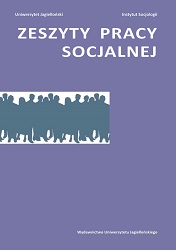
The main aim of this paper is to present a new approach to working with children and young people, as described in Jesper Juul’s book Aggression. A New and Dangerous Taboo? This approach consists of treating a child as a subject, following his or her needs, avoiding stigmatization and paying special attention to building a healthy self-esteem. These issues are considered mainly from the perspective of a social worker, educator, pedagogue. In order to understand the validity of Jesper Juul’s educational concept, the work places great emphasis on raising awareness of the unequal treatment of a child and its issues in relation to adults.
More...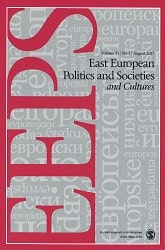
This article turns to Havel’s contemporaries in the Czech music underground to look at earlier uses of the phrase “living in truth.” I focus on Egon Bondy’s 1976 novel The Shaman, where truth is portrayed in mystical terms as a form of transcendence achieved through solitary spiritual training—a mental state that is divorced from political opposition. Havel repurposes the idea of “living in truth,” avoiding mystical notions in favor of civic engagement, but he also steers clear of the romance of “dissident stories” about people persecuted for such engagement. I explore why Havel’s famous story of the greengrocer is so weak on motivation; rather than painting a scene or creating a three-dimensional character, Havel gestures weakly at the greengrocer’s sudden transformation into an oppositional figure. Havel also consistently uses scare quotes around the phrase “living in truth,” registering his own discomfort with a phrase that is inspiring, yet plays into dissident clichés. I see The Power of the Powerless as delineating a version of dissident truth while remaining skeptical about its transmission; Havel skillfully mixes pathos and irony as he considers the role of “dissidents” caught between Czechoslovak realities and Western expectations.
More...
This essay juxtaposes two thinkers: the French literary critic and philosopher René Girard (1923–2015) and the Czech playwright, essayist, and dissident Václav Havel (1936–2011). In particular, the text examines Havel’s 1978 essay The Power of the Powerless through the lens of Girard’s structuralist model of mimetic desire, violent sacrifice, and a cultural order sustained by prohibition, ritual, and myth. Arguing against the French structural anthropologist Claude Lévi-Strauss (1908–2009), Girard insisted on a reality behind the text: myths disclosed real victims. Girard and Havel shared a merciless anti-populism: society was guilty. They shared something else as well: in an age of a loss of faith in Marxism and all grand narratives, and of skepticism about the possibility of any stable meaning, subjectivity, and truth, Havel and Girard insisted on the ontological reality of both truth and lies, and on the ontological reality of the distinction between them.
More...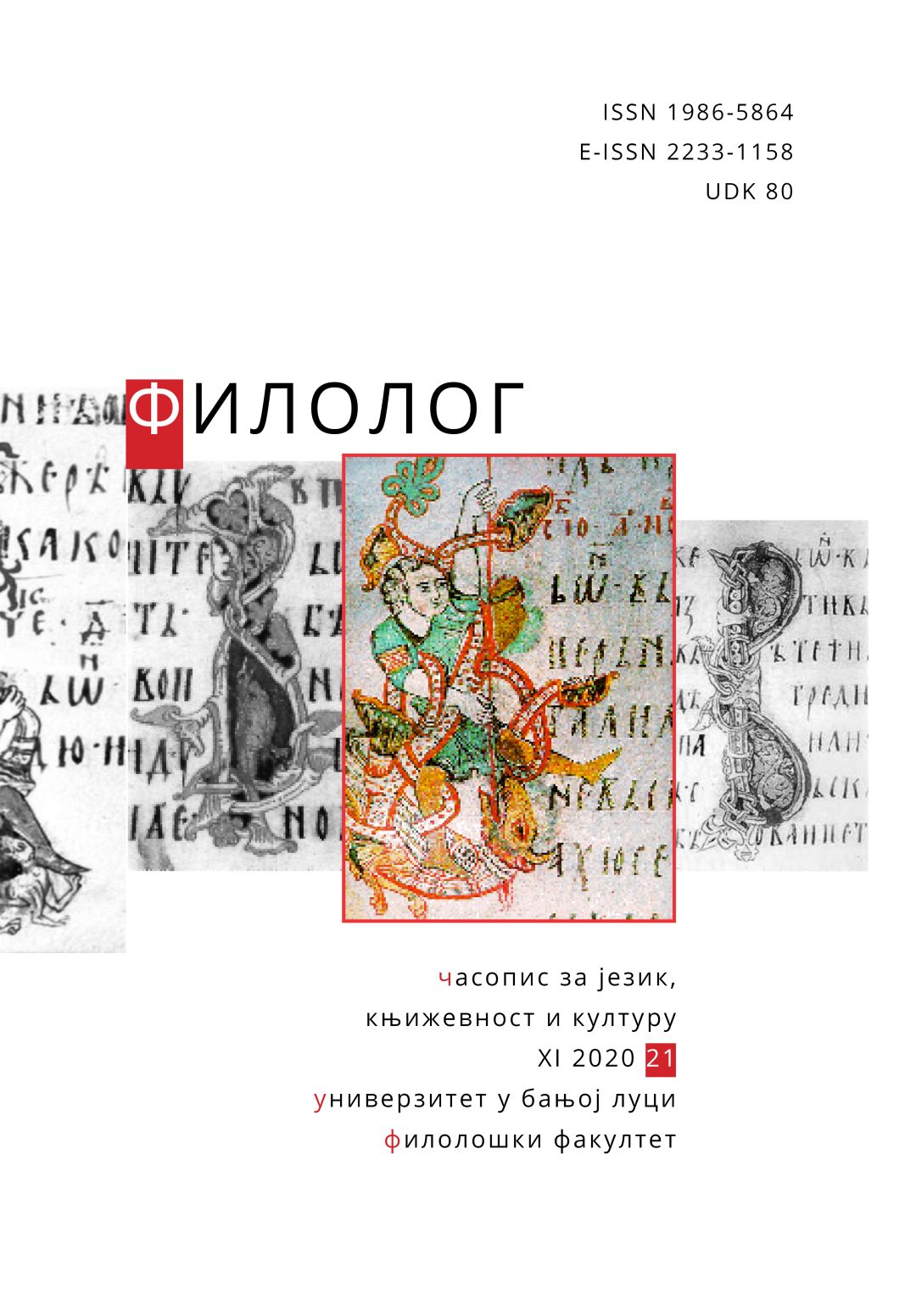
This paper examines intertextual influences and ties between Thackeray’s Vanity Fair and Tom Wolfe’s Bonfire of the Vanities. After an analysis of the problems of intertextuality as applied to complex literary structures, Gerard Genette’s systematisation of intertextual phenomena is concluded to be the most suitable model. The paper focuses on examining parallelisms through contrasting texts directly, as well as placing the findings in a broader context concerning modern realist and realism-inspired novels, otherwise labelled under the term ”Neo-Realism”. The analysis itself focuses on examining intertextuality within the titles, the serial form of both novels and its situational influence on plot and structure. This is followed by an examination of other microstructures (plot devices, narrative voice, and thematic parallelisms) with the aim of understanding the intent and meaning of Wolfe’s alterations to the self-chosen Thackereyan model. Finally, the characteristics, as defined throughout the paper, are reconceptualised through the lens of Wolfe’s explicitly poetic texts. From this perspective, The Bonfire of the Vanities emerges as one of the key novels in modern neorealist prose.
More...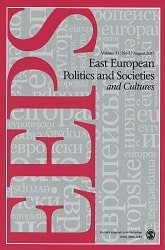
Tadeusz Konwicki’s literary and cinematic treatment of the Palace of Culture and Science has had a significant influence on the perception and meaning of this Stalinist edifice. In his novels, Wniebowstąpienie [Ascension] (1967) and A Minor Apocalypse (1979), Konwicki uses the Palace as a means of critiquing communist ideology by adopting a Christian discourse that, in turn, invokes and questions the Polish Romantic messianic and martyrological tradition. In the 1989 film Lawa: Opowieść o “Dziadach” Adama Mickiewicza, Konwicki’s presentation of the Palace visually explodes into what seems to be the author’s “final” statement on the signification of the Palace. By examining the poetics of the Palace of Culture in Wniebowstąpienie, A Minor Apocalypse, and Lawa, this essay considers how over a period of twenty years Konwicki appropriated the meaning of the Palace by playing on the tension between the intended original signification of the building (as a Stalinist structure) and its function as a dynamic edifice that could be redefined in a localized (Polish), urban (Varsovian), and historical context.
More...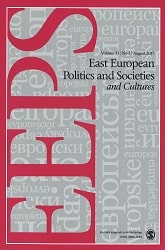
In this article, the author examines the relationship between power, time, and human reality. Using a novel by the Bosnian writer Meša Selimović as a case study, the author tests two metaphysical claims: power submits to power only, and the passage of time empties the significance of each and every human activity. The author finds that Selimović’s novel confirms both. The conclusion is profoundly pessimistic. The lives of human beings are doubly unhappy: they are spent in protracted struggles for resources and recognition that yield power, and also even the accomplishments of the victorious in these struggles will be erased by the passage of time. However, the understanding of the second claim might retroactively ameliorate the conditions of human life. Yet as evidenced by Selimović’s novel, in the world dominated by power, this does not happen. The case of Šehaga Sočo shows that even the one whose personal experience convinced him of the meaninglessness of it all is unable to break out of the cycle of rivalry and revenge. At his deathbed, he orders the death of his rivals, though he knows that to him dying, it makes no difference whether they live or die. Why not opt for forgiveness? Because, as Selimović emphasizes, power’s insistence on self-perpetuation is illogical, and it is logic that tells us not to engage in meaningless tasks. In other words, human reason is powerless to provide us with a more tolerant world.
More...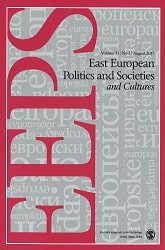
In the article, Ismail Kadaré’s 1986 novel, The Shadow, is analysed as a form of apologia pro vita sua about the deformations of life under a dictatorial regime. This interpretation demonstrates that Kadaré was a dissident in his own terms during the reign of the dictatorial regime and that this type of opposition was something different from the political and ideological critique of post-totalitarianism. Throughout his work, Kadaré has suggested the existence of an alternative Albania to that of the regime, intimating that the historical roots of his nation can give birth to different versions of Albanian identity to that propagated by the Albanian Party of Labour. Using the figure of the legendary Albanian hero, Konstantine, in The Shadow, The Twilight of the Steppe Gods, and elsewhere in his oeuvre, Kadaré links the contemporary problematics of dissidence and existential authenticity under the dictatorship to historical patterns of Albanian culture and individual existence.
More...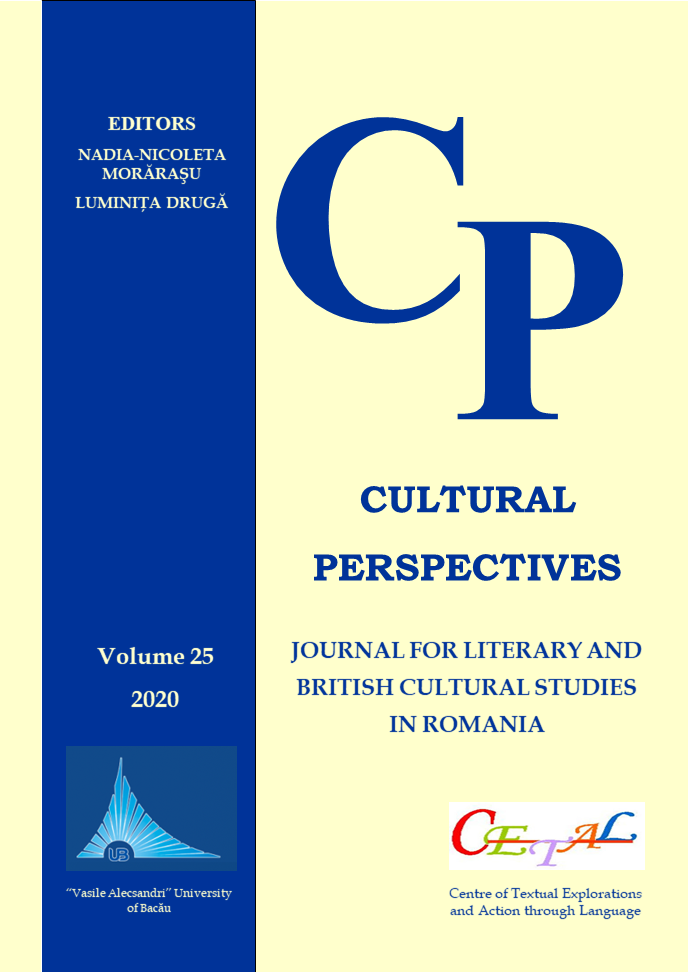
This paper focused on several aspects of life in Great Britain. I wanted to concentrate chiefly on two important points. Firstly, I tried to find and compare the differences in lifestyle and related entertainment in the country villages, towns and cities in the early years of the nineteenth century which I perceived as largely dominated by deeply rooted traditions and strict social norms. As the basic source for my research I selected some of Jane Austen’s novels as they serve as real social chronicles of her times. Secondly, I did a similar analysis and comparison of the same aspects at the turn of the twentieth and twenty-first centuries as they were reflected in Helen Fielding’s novel Bridget Jones’ Diary. I thoroughly analysed and compared the aspects of life, the habits, norms, rules and views, class affiliations, the snobbery, vanity and conceit of middle and upper classes in Britain in the nineteenth and twentieth centuries. The findings, based mostly on the strictly observed and applied rules of socializing showed that no matter what century we live in now, nothing much has changed between Austen’s and present times when speaking of social rules, norms, class distinctions and equally importantly – position of women.
More...
The influence of the Victorian on postcolonial Indian narratives in English dates to the 1930s with the Founding Fathers: Mulk Raj Anand, Raja Rao and R.K. Narayan. There is a clear development of the Indian social novel that emerges in the Gandhian era to the connexions with the Victorian, underlying the relationship between neo-Victorianism and globalization. It is the aim of this article to highlight a Dickensian pervasive presence in the first stages of Indian narratives in English, specifically the Indian social novel. I will establish a comparative approach between Dickens’ celebrated novel Great Expectations (1860-61) and Coolie (1936) by Mulk Raj Anand, the social Indian writer par excellence. I suggest a neo-Victorian encounter framed within a colonial/postcolonial encounter, making explicit how different historical processes – late eighteenth-century England and the Gandhian era in India – cause a similar social impact on so different contexts. Mulk Raj Anand adapts and appropriates the Victorian in Coolie, showing deep social concern and claiming against social evils, injustice and hypocrisy in India. This analysis stands as a transcultural exercise that shows Dickens’ universal scope regardless of time and space.
More...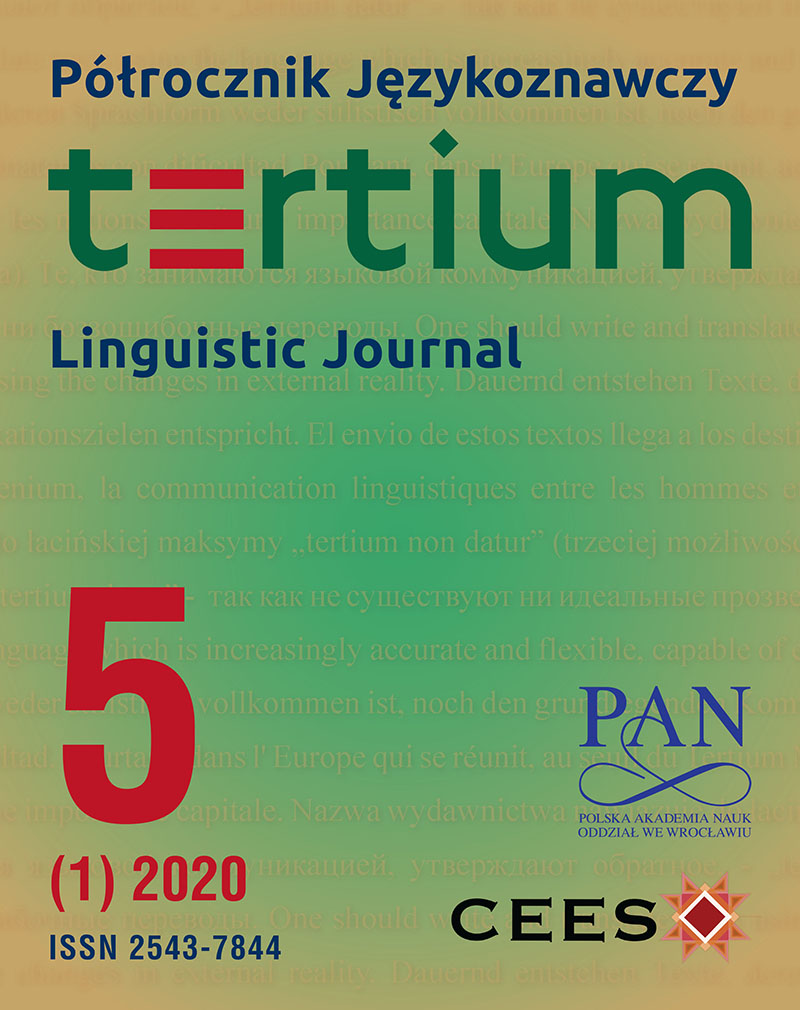
The primary function of food is to regulate basic body processes and support its functions. However, the role of food is more than just the satisfaction of physiological needs. Food and foodways are important elements of each culture deeply rooted in individual and collective memory. They define specific ethnic groups and mark particular cultures. The aim of this paper is to show multidimensional roles that food plays in the lives of the community and an individual on the example of Brick Lane by Monica Ali. An emphasis is put not only on the psychological, cultural, aesthetic and social functions of food but also on the constructive role of nostalgic food memories. Food and culinary rituals play a crucial role in the protagonist’s life, as they symbolically accompany the process of the identity formation and the personal transformation she undergoes. Jedzenie jako jedna z najbardziej podstawowych potrzeb człowieka służy podtrzymywaniu funkcji życiowych i regulacji podstawowych procesów organizmu. Trzeba jednak pamiętać, że rola jedzenia nie sprowadza się jedynie do wymiaru fizjologicznego. Jest ono bowiem istotnym elementem każdej kultury głęboko zakorzenionym w pamięci indywidualnej i zbiorowej. Tradycje kulinarne definiują grupy etniczne i charakteryzują poszczególne kultury. Celem niniejszego artykułu jest przedstawienie wielowymiarowej roli jedzenia w życiu zbiorowości oraz jednostki na przykładzie powieści Brick Lane autorstwa Moniki Ali. Autorka niniejszego artykułu koncentruje uwagę nie tylko na psychologicznej, kulturowej estetycznej czy społecznej funkcji jedzenia ale także na konstruktywnej roli nostalgicznych wspomnień, które wywołują tradycje kulinarne. Jedzenie i praktyki kulinarne pełnią ważną rolę w życiu głównej bohaterki powieści, bowiem symbolicznie towarzyszą jej w procesie kształtowania tożsamości i osobistej transformacji.
More...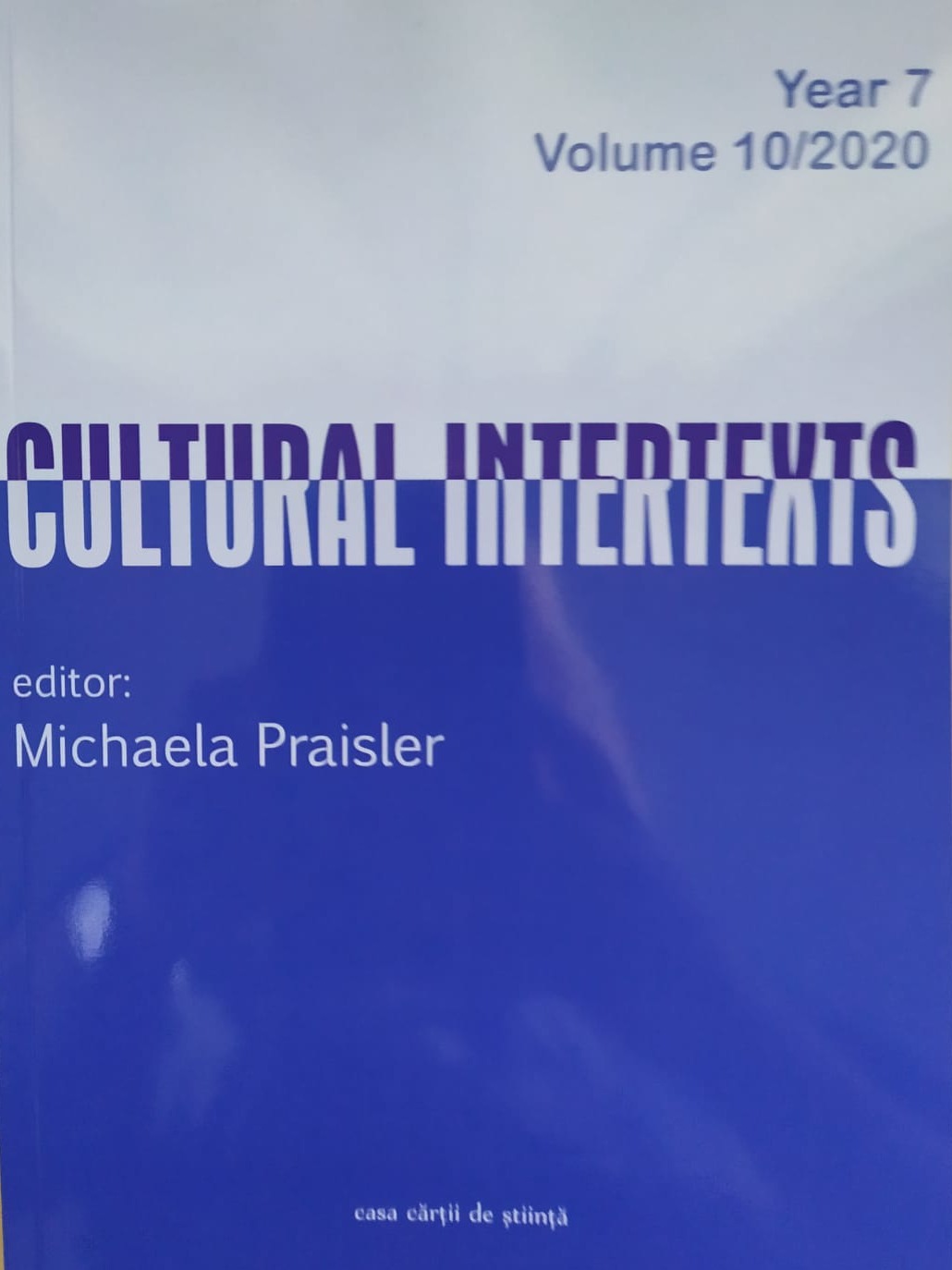
John Dos Passos conveyed multiple intersections of art and culture and the spirit of the 1920s in his prose. His novel Manhattan Transfer is characterized by intermediality: a combination of theatre, film, and visual art. With this novel, Dos Passos became a chronicler of American life. A passionate critique of modern society runs through Manhattan Transfer. The city is presented in this novel as a site of cultural intersections and transition and this focus is matched by the fragmentary qualities of the text. From his war novel Three Soldiers through his city novel Manhattan Transfer, Dos Passos places his readers in the swirl of the human currents of his time and argues for the human spirit against the forces of a mechanistic world that would crush them. The harshness of the vibrant city is illustrated through the strivings and affairs of these immigrants, Broadway stage performers, journalists, and business aspirants. The relationships between Dos Passos’ experimental fiction and modern art and film are explored, along with the cultural transition of the American 1920s.
More...
The paper explores the representation of diasporic Muslim identities in a coming-of-age narrative: Arab American female novelist Mojha Kahf’s bestseller The Girl in the Tangerine Scarf published in 2006. It examines how the religious diasporic hybrid identity is mobilized within the female protagonist Khadra Shamy, including the ways she struggles to negotiate her identity across different cultural terrains and gendered, racialised, intergenerational configurations. It attempts to show how these literary representations construct --and help conceptualize—the ways we understand diasporic Muslims in the U.S. The individual experiences as narrated in the novel illuminate a series of essential socio-political questions facing the community as a religious minority in a secular context. This study will address these questions through the representation of cultural hybridity in the literary narrative within the framework of postcolonial theory. It focuses on three constructs of the novel central to the conceptualizing of a hybrid identity of the female protagonist: firstly, the mirror images and moral panics that generate cultural clashes in the East-West encounter, which foreground, secondly, the predicament of an ambivalent existence of the protagonist as a diasporic individual, and thirdly, the ways she forges her hybrid identity as a New Woman within the diasporic context.
More...
In his seminal essay theorizing the concept of heterotopia, “Of Other Spaces”, Michel Foucault insists that his focus is on external spaces. However, given the ability of certain spaces, especially those associated with trauma and torment, to simultaneously be inhabited and inhabit the psyches of their denizens, it stands to reason that some heterotopic spaces are internal as well. One such example is Ursula K. Le Guin’s Dry Land, an inner hellscape which appears throughout her Earthsea series. The Dry Land serves to mirror, invert, and contest not only the world of Earthsea, but also the pervasiveness of Western literary and cultural influences on the genre of fantasy itself. Inspired by classical and Renaissance sources (Homer and Dante) and modernist ones (Rainer Maria Rilke and T. S. Eliot), the Dry Land, a jarring spatial and literary aberration in the context of Earthsea’s Taoist framework, serves to confront both the resistance to the finality of death and the supremacy of the Western literary canon. In doing so, it demonstrates Le Guin’s desire to distance herself from Western canonical influences, while nevertheless highlighting the fact that, given the cyclicity of literary rebellion, she is, in fact, walking in Dante’s and T. S. Eliot’s shoes.
More...
The paper analyses a contemporary Georgian novel – Zura Jishkariani’s Chewing Dawns: Sugar-free. The novel belongs to the sub-genre of bio-punk. The aim of the paper was to identify the defamiliarized and ironized socio-cultural processes taking place in the contemporary Georgian society, considering the narratological concept of alternative worlds and the theoretical framework of conceptual metaphor. The outcomes of the research would draw the cultural-intellectual orientations of contemporary Georgian society. Based on these two conclusions, the paper aimed to find an age-long similarity between the social-political challenges of the 1920s and the contemporary problems of the Georgian society. Research has proved that numerous systems of values have been deconstructed and carnivalized by means of a play with alternative worlds. The development of the world depends on the activation of the human brain capacity, which ensures the cognition of the “higher reality“. The literary text under analysis reflects current achievements in cognitive sciences. The mental trips reflect the capacity of the human brain. The text describes the protagonist’s aspiration towards manipulating and stimulating of the human brain. This is the only way to overcome the banality of life. The manner of narration and the idealization of the aim serve the purpose of description of the revolutionary spirit.
More...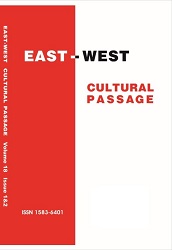
The aim of this essay is to prove that, throughout Ali Smith's There But For The (2011), the “narrative” subjective identity (Alphen 83) accessed via the face-to-face relation (Levinas and Hand 42), as well as through storytelling itself, is liable to be turned into archivable information under the pressures of a surveillance state in which its citizens are complicit. I will use this archival/ narrative identity dyad as articulated by theorist Ernst van Alphen in order to investigate at length the novel’s staging of hospitality as corrupted by surveillance. I will oppose the notion of identity as information against Emmanuel Levinas’s conception of the face-to-face relation (Levinas and Hand 42), whereby true hospitality depends upon the mutual respect one person has for the absolute singularity of the other, which involves personal information and the right to privacy. As it will become apparent, these identities lose or gain agency according to the engagement of the self with a newly arrived foreign alterity. Thus, the arrival of strangers throughout Smith’s novel thematizes the scenario of hospitality in tension with the stranger as surveyor or as surveyed. The doubling of language, the self-editing of one’s discourse and the risky openness towards the Other are modes of resistance that eschew the artificial categorizations upon which the archival identity is contingent. However, the bridge from interiority to exteriority is mediation. Smith therefore develops a conception of secularized Grace that works by exploring the revolutionary potential of this very mediation and can disrupt the logic of tyrannical surveillance. Part of this approach to history and language is informed by the witnessing of the traces left on the bodies of martyrized dissidents by unjust systems at their apex. There But For The is narrated by four characters in the mediatic aftermath of a bourgeois dinner party in an affluent suburb of London that witnessed the sudden and unexplainable reclusion of Miles Garth into the spare room of his stunned hosts. The event, as well as those leading up to and following it, is recounted by a grieving nature photographer in his sixties named Mark; May, a rebellious old woman suffering from dementia; an unemployed, middle-aged Anna; and Brooke, a ten-year old girl and voracious reader. The essay will approach these characters’ meditations upon the nature of identity as split between its narrative and archival forms.
More...